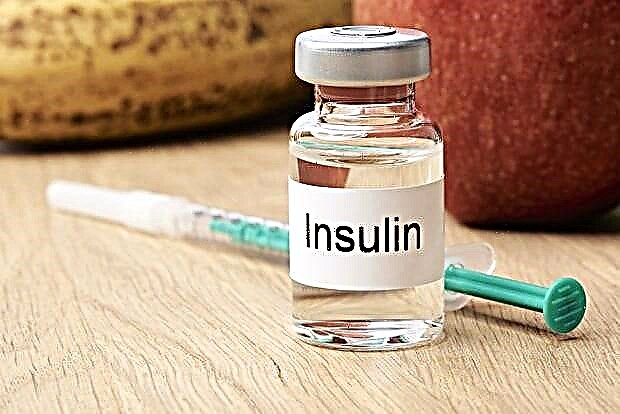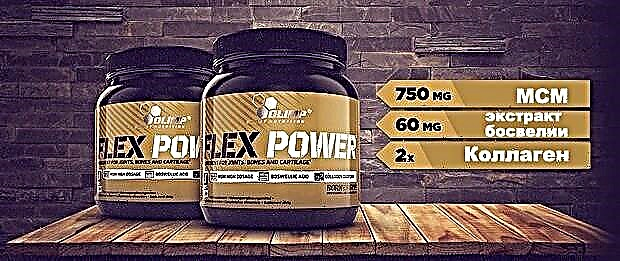Doctors talk about metabolic problems, manufacturers of various supplements say, instructors of crossfit clubs do not forget to mention. Is metabolic disorder a reason for speculation or a real problem? Let's figure out what it is, what are the causes and symptoms, what is the treatment.
Metabolism, or metabolism, is a cycle of chemical reactions that ensure the activity and development of the body. Thanks to the most complex processes, substances coming from outside provide our vital needs at a basic level.
A metabolic disorder is a failure in any system responsible for the course of energy and biochemical processes. Dysfunction can occur in the adrenal glands, thyroid or gonads, pituitary gland, etc.
The problem may be the wrong diet. Nutrition can be inadequate, overweight, or even inadequate. This is reflected in the work of the nervous system, which finely regulates metabolism. The tone changes in individual brain centers. In the context of metabolism, the problem most often concerns the hypothalamus, which is responsible for storage and building processes, for the nature and rate of conversion of energy from food.
Among the causes of metabolic disorders:
- Age. More often, age-related failures occur in women. Over time, the production of female sex hormones stops, and this provokes problems in metabolic processes.
- Nervous strain. Stress is a common cause of metabolic disorders.
- Alcohol and smoking abuse.
- Genetic predisposition.
- Parasitic factors (worms and microorganisms).
- Hectic daily routine.
- Postponed certain diseases, etc.
- Fermentopathies.
- Metabolic syndrome.
- Neuro-endocrine pathology.

There are several types of metabolic failures. There are violations:
- Protein metabolism. Protein is an important component of hormones and enzymes. But there are no reserves of these components in the body, they must be regularly supplied with food. When there is a lack of protein, the body draws it from muscles, internal organs and bones. This cannot but result in metabolic problems. An excess of protein is also dangerous, as it leads to fatty degeneration of the liver, overload of the kidneys, a violation of the acid-base balance, and chronic loss of calcium. Prolonged protein overload is fraught with the development of gout, urolithiasis, obesity (source - Textbook "Human Physiology", Pokrovsky).
- Fat metabolism. The causes of this pathology are exhaustion and obesity. Fasting leads to hormonal imbalance, decreased immunity, hair loss, hypovitaminosis and other troubles. Obesity increases the risk of developing diabetes mellitus, cardiovascular diseases, hypertension, coronary heart disease, atherosclerosis.
- The exchange of carbohydrates. Among the pathologies associated with carbohydrate processes, the most common are hyperglycemia and hypoglycemia. In the first case, we are dealing with an increase in blood glucose levels. The problem can develop and worsen with overeating, diabetes, with certain diseases of the thyroid and adrenal glands (source - "Wikipedia").
Hypoglycemia is the opposite condition in which blood glucose levels decrease. The problem appears with diseases of the kidneys, liver, as well as due to a low-carbohydrate diet and disorders of the digestive system.
- Water exchange. The consequences are fluid retention or, conversely, dehydration. Both are very dangerous. For example, excessive fluid loss leads to thickening of the blood, the risk of blood clots, dysfunction of the excretory system, high blood pressure, etc.
- Vitamin exchange. The pathologies associated with this are vitamin deficiency, hypervitaminosis and hypoavitaminosis. In each case, serious troubles arise.
- Mineral exchange. Mineral imbalance leads to a weakening of immunity, damage to tissues and organs, and other pathologies. Changes in the mineral composition of bones lead to frequent, long-term healing, fractures.
- Acid-base balance. In a healthy body, the content of alkali and acids is stable. The imbalance of the components can manifest itself in different ways - from irritability to death.

The first signs of metabolic disorders
There are a lot of signs of metabolic disorders. Their nature depends on the characteristics of the organism and the specific problem. But there are a number of "signs" that unambiguously indicate the presence of a failure in metabolic processes.
Outwardly, a person may not show the existence of a problem in any way. But analyzes are able to give out the real state of affairs. Low hemoglobin, high sugar, excess cholesterol and salts are a sign that things are not going smoothly at the cellular level.
Even before a malfunction in the course of metabolic reactions blossoms violently, its sprouts can manifest itself in apathy, weakness, chronic fatigue, sleep disorders, hair loss, headaches. With a decrease in energy and thirst for life, you must first of all dig towards metabolic dysfunctions.
Symptoms include:
- weight loss or gain;
- suppressed appetite;
- hair problems;
- rash and redness of the skin;
- tiredness and inability to regain strength even after a good sleep;
- bowel disorders;
- (in children) developmental delay - physical and / or mental.
As a rule, without proper control, the condition develops into a full-fledged metabolic syndrome - a total violation of all types of metabolism with an increase in blood pressure. The logical result of metabolic syndrome (source - Textbook "Obesity and metabolic syndrome", Ginzburg):
- accumulation of visceral fat;
- the development of insulin resistance, which leads to the development of diabetes mellitus;
- coronary heart disease;
- acute vascular accidents, often fatal.
Like the causes, symptoms are highly variable. Therefore, the treatment can be difficult to find the root of the problem.
Treatment methods
Fighting the causes and consequences of metabolic disorders is a responsible and complex business. Congenital metabolic diseases require constant medical supervision and regular therapy.
Acquired diseases can usually be stalled in the early stages of their development with timely seeking help. Many diseases spill over into very problematic forms without treatment.
However, without doctors, victims of metabolic disorders have plenty to do. The main attention should be paid to diet and diet. The amount of carbohydrates and animal fats consumed should be reduced and constantly monitored. Fractional nutrition is the ability to reduce the amount of food that comes in at a time. This maneuver responds by shrinking the stomach and gradually decreasing appetite.
It is equally important to tidy up your sleep patterns.
The state of the nervous system is of great importance. You should avoid stressful situations and learn to adequately respond to those that do occur.
Without regular physical activity, it is almost impossible to achieve this, the other and the third - physical education should become a part of life.
But the basic and obvious points in no case should stop you on the way to a specialist - the doctor will tell you how to treat metabolic disorders in the body. The question is who to run to?
Who to contact in case of metabolic disorders?
At the first signs of metabolic disorders, you need to go to a therapist. He will examine, prescribe tests and establish a primary diagnosis. And he will also send you to a specialized doctor. Almost any medical professional can become such.

With pathologies of the thyroid, adrenal glands or pancreas, you will have to go to an endocrinologist for an appointment. In case of disorders of the digestive system, a gastroenterologist will most likely take on the patient. And, perhaps, even a psychotherapist - his help is indispensable for those who abuse diets. In order to correctly compose a diet, knowledge is needed - a nutritionist has it.
Atherosclerotic signs are the reason to be in the office of a neurologist, cardiologist or vascular surgeon. If osteoporosis becomes a consequence of metabolic problems, a direct path to a traumatologist or rheumatologist.
In some situations, you will have to be examined by an immunologist - the immune system needs to be put in order for most of us.
Kidney problems will be dealt with by a nephrologist. In case of menstrual irregularities and / or infertility, you should go to the gynecologist - these problems can also be a reflection of metabolic imbalance. If you notice a rash on the skin, you need to contact a dermatologist.
Let's go back to physical activity. They are useful and necessary in any case, but it is always better for an amateur to prefer a specialist's participation in the problem. The exercise therapy doctor will help to draw up a physical education plan, taking into account the problems and individual characteristics of the organism.
We have listed a large number of specialists - unfortunately, the problem range is very wide. Be that as it may, an integrated approach is most important in treatment. Trouble does not come alone, and metabolic imbalances are rarely localized. Therefore, the best results are possible with combination therapy. Better yet, prevent the disease.
Prevention of metabolic disorders
The best defense is offense. It is always easier to prevent a disease than to overcome it. Take care of nutrition, avoid nervous overstrain, let sport into your life. When viewed in terms of strength sports, it is important to consider the amount of calories and protein consumed. An overly sharp reduction in calories and muscle loss. Skewed to the other side, and the fat stays in place. Fighting the problem, you have to walk on the edge and accurately calculate the components of the diet.
Table of Recommended and Junk Foods for Metabolic Disorders.
| Featured Products | Unwanted foods |
| White meat | Fat meat |
| Lean fish | Fatty fish |
| Fresh vegetables | Assorted meat |
| Fresh fruits | Offal |
| Whole grains | Sauces and condiments |
| Legumes | Alcohol |
| Tea without sugar | Pasta and industrial bread |
| Skimmed or plant-based milk | Fried eggs |
| Low fat yogurt | Sweets |
| Olive oil | Sweet drinks |
| Low fat cheese | Dried fruits |









